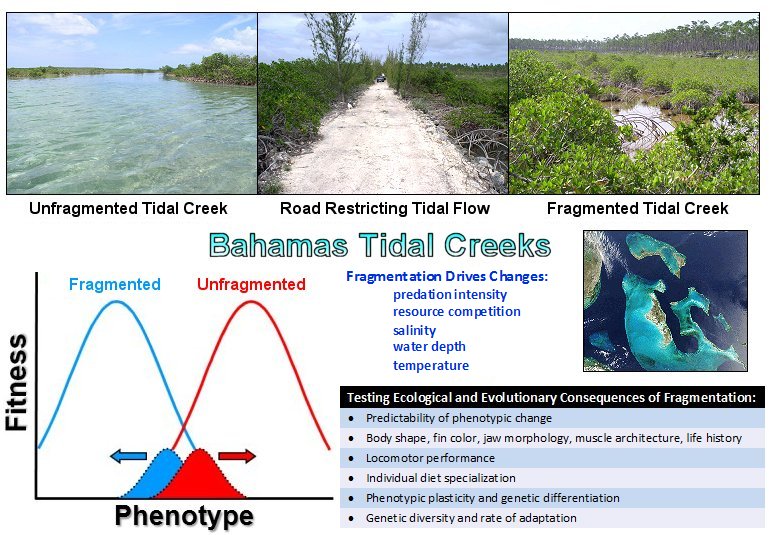Human-induced rapid evolution in wild organisms is receiving increased attention. Humans can serve as an evolutionary force of extraordinary influence, driving rapid evolutionary change. However, we currently know relatively little about the nature, magnitude, or predictability of evolutionary responses to anthropogenic modifications of natural environments. In our lab, we are investigating the ecological and evolutionary impacts of humans in multiple systems, with our current focus on tidal creeks in the Bahamas.
In a collaborative NSF-funded project with Craig Layman, we are testing the ecological and evolutionary consequences of ecosystem fragmentation on Bahamas mosquitofish. Fragmentation of tidal creeks is very common in the Bahamas, typically resulting from roads constructed across a creek, greatly reducing hydrologic connectivity. Such fragmentation has dramatic envioronmental consequences, such as severely reducing the density of piscivorous fish (see figure to the right). We are (1) testing predictions of trait divergence across six islands for three divergent clades of Bahamas mosquitofish, (2) performing detailed multi-year studies across many tidal creeks on one island, and (3) performing laboratory experiments to uncover mechanisms underlying patterns observed in the field.
|


